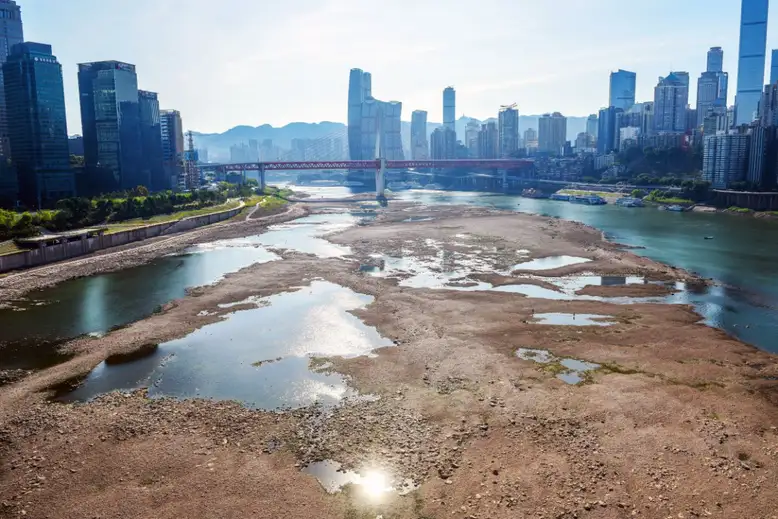Once in a lifetime heatwave
October 14, 2022
This past summer, China experienced its highest temperatures and lowest rainfall totals in all of its recorded history (over 61 years). According to Xiao Chan, the vice director of China’s National Meteorological Administration, the average temperature in August rose by over 11-15 ℃ (12-17 degrees Fahrenheit), and rain totals averaged about 88 mm (3.5 inches). This extreme heatwave caused many rivers to dry up and added to the growing climate crisis that will most likely continue in the future.
The real issue with this heatwave is that China relies heavily on its rivers for electricity, drinking water, and its economy. China’s largest river, the Yangtze, partly dried up and many smaller rivers and streams were left to a trickle. Some cities/regions in China generate the majority of their electricity from hydroelectric power. The region of Sichuan gets 80% of its power from the Yangtze, and, as a result, the region is being forced to ration electricity and water supply to citizens. This heatwave has caused many cities and regions rely on coal or fossil fuel generated electricity which will continue the vicious cycle of global warming.
Authorities have warned citizens that the fall harvest is at risk, which may cause a global food shortage. According to the Food and Agriculture Organization of the United Nations, China grows and distributes 25% of the global supply of grain and produces about 10% of the food consumed globally. If even a small portion of this food is not able to be exported, many of China’s trading partners, such as Japan, Hong Kong, and the US, who rely on China for food exports, will experience food shortages.










